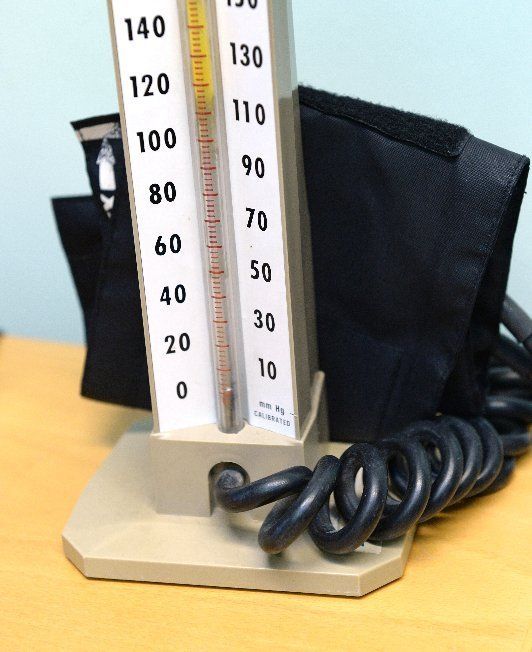All consultations with a nurse at the surgery are by appointment only and are available daily from 8am to 5.10pm.
The receptionist will ask you what your appointments is for so that sufficient time can be booked for your appointment.
- Care and advice for a variety of long-term conditions including Coronary Heart Disease, Hypertension, Asthma, COPD, Diabetes or Stroke
- Blood pressure checks.
- Cervical smears
- Family Planning
- Blood tests

Most appointments with the nurse are face to face in the Practice, but annual reviews for asthma and diabetes can be provided over the phone if necessary.
- Dressings
- Removal of stitches / staples /clips
- Ear care services
- Pre audiology checks
- Vaccinations
Our Practice Nurses are able to take bloods however we also have three phlebotomists who are trained to take bloods
These appointments are only for taking blood samples for laboratory tests.
All tests need to be discussed with a GP or Nurse in advance.
Appointments are available from 7.30am every morning, and can be arranged by contacting the Practice by telephone.
If you are coming for an appointment before 8am you will need to ring the door bell as our doors do not open until 8am.

Understanding PSA Testing: What Patients Should Know
We are aware that there is an increased interested in prostate cancer and PSA testing. If you are 45 years or over you can book an appointment with one of our phlebotomist for a PSA test without speaking to the doctor first, however we recommend that you read the following information in advance of your appointment. Prostate Cancer UK also provide useful information and support about prostate cancer and testing.
What is a PSA Test?
The Prostate-Specific Antigen (PSA) test measures the level of PSA, a protein produced by the prostate gland, in the blood. Elevated PSA levels can indicate prostate problems, but it doesn’t necessarily mean you have prostate cancer.
Why is the PSA Test Done?
The PSA test is commonly used to:
- Screen for prostate cancer in men over 50 or those at higher risk (e.g., family history).
- Monitor prostate cancer in patients who have already been diagnosed and treated.
- Help investigate symptoms such as difficulty urinating, pain, or blood in urine.
What Can PSA Levels Indicate?
- High PSA Levels: Elevated levels can suggest prostate cancer, but they can also be caused by non-cancerous conditions like benign prostatic hyperplasia (BPH) or prostatitis (inflammation of the prostate).
- Low or Normal PSA Levels: A low PSA level typically indicates a lower likelihood of prostate cancer, though it's not a guarantee. Some men with normal PSA levels may still have prostate cancer, especially in its early stages.
Factors That Can Affect PSA Levels
PSA levels can be influenced by several factors, including:
- Age: PSA levels naturally increase with age.
- Prostate size: Larger prostates can produce more PSA.
- Recent activities: Recent sexual activity, prostate infection, or a digital rectal exam (DRE) can temporarily raise PSA levels.
- Certain medications: Drugs like finasteride (often used for BPH) can lower PSA levels.
PSA Test Limitations
- False positives: A high PSA level doesn’t always mean cancer. Many men with elevated PSA levels do not have prostate cancer.
- False negatives: Some men with prostate cancer may have normal or low PSA levels.
- PSA testing is not perfect and should be combined with other tests (like biopsy or imaging) for a more accurate diagnosis.
Screening Guidelines
There is ongoing debate about the benefits of routine PSA screening:
- For average-risk men: The Prostate Cancer Society suggests discussing PSA testing with your healthcare provider starting at age 50, or earlier (around age 40-45) for those at higher risk (e.g., African American men or those with a family history of prostate cancer).
- For older men: Men over 70 or with a life expectancy of less than 10 years may not benefit from routine PSA testing.
Risks of PSA Testing
While PSA testing can detect early prostate cancer, it can lead to overdiagnosis and overtreatment. Some prostate cancers grow very slowly and may never cause symptoms, so treatment may not always be necessary.
What Happens After a PSA Test?
- If your PSA level is elevated, further tests such as a biopsy or imaging may be recommended to check for cancer.
- If the test shows normal or low levels, your doctor may recommend periodic testing to monitor any changes over time.
In Summary
PSA testing is a useful tool for detecting prostate issues, but it is not definitive for diagnosing prostate cancer.

